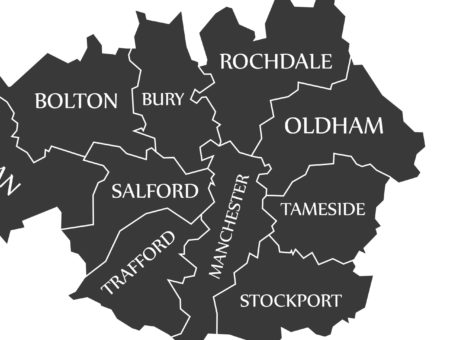The report to go before Greater Manchester’s waste and recycling committee was written by Justin Lomax, head of contract services at GMCA’s waste and resources team.
It provides an overview of the performance of waste and resources management services and the household waste recycling centre management services, with the contracts for these held by Suez having commenced on 1 June 2019 (see letsrecycle.com story).
The document compared total waste arisings, landfill diversion, HWRC recycling rate, overall recycling rate, contamination levels, tonnage rates for the period with the same time frame in 2021/22.
Arisings
The report noted that total waste arisings fell from 598,293 tonnes in 2021/22 to 539,237 tonnes in 2022/23. However, the recycling rate stayed roughly the same, increasing by 0.1% to 47.9% in 2022/23. Landfill diversion decreasing slightly by 0.1% to 98.8%.
The fall in waste arisings is likely to be replicated across the country as residents tighten their belts and buy less.

Elsewhere, there has been an increase in contamination levels of kerbside collected commingled recyclate. The contamination rate for recyclate sent to the Longley Lane MRF, was at 13.5% in 2022/23 in comparison to 12.8% for the same period the previous year.
This the non paper and card commingled recyclate collected under the region’s twin stream system. For paper and card, the tonnage rejected at paper reception points fell by more than 20% to 856 tonnes.
Food waste
The document also noted that officers agreed to collaborate on a food waste reduction campaign across districts and to update the committee members. Reducing unnecessary food waste was also mentioned as one of the authority’s priorities for 2023.
This comes after the government wrote to waste collection and waste disposal authorities seeking information on the possible impact of the requirement for weekly separate food waste collections (see letsrecycle.com story).
The report argued that while the questionnaire considered the impact of the service rollout on existing residual waste contracts, “what it did not cover is the potential impact on other contracts”.
“For us the other half of the implications assessment needs to consider our existing contracts for the treatment of biowaste via in vessel composting and wider service issues,” the report read. “We will seek clarification on the latter part of this statement as previously it had been hinted that the mixed biowaste service utilised across Greater Manchester may be acceptable subject to a technical and environmental assessment,” it added.
POPs
Touching upon the recent RPS on persistent organic pollutants (POPs) found in waste seat furnishing, the document said that “in the short term, there appears to perhaps be little operational impact on the waste disposal authority”.
However, the authority continued that it is “not clear if we can take a precautionary approach and categorise all waste upholstered domestic seating as POPs-containing”. It added that “on the face of it this would remove the need to separately test each item to see whether they are POPs-containing but some clarification on testing is required”.












Subscribe for free